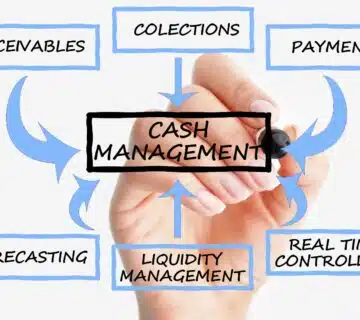As a business owner or financial manager, keeping accurate financial records is essential to making informed decisions and maintaining the health of your business. Account reconciliation is a critical component of financial management that involves matching your bank statements with your financial records to ensure all transactions are accounted for and accurately recorded.
Why is Account Reconciliation Important?

Account reconciliation is important because it helps you identify and correct any errors or discrepancies in your financial records. This can include discrepancies in bank statements, discrepancies between your financial records and your bank statements, and other issues that can impact your financial health .
By regularly reconciling your accounts, you can avoid errors that can lead to overstated or understated balances, as well as other financial issues.
Account reconciliation is important because it helps you identify and correct any errors or discrepancies in your financial records. This can include discrepancies in bank statements, discrepancies between your financial records and your bank statements, and other issues that can impact your financial health. By regularly reconciling your accounts, you can avoid errors that can lead to overstated or understated balances, as well as other financial issues.
Why is Account Reconciliation Important?
Account reconciliation is important because it helps you identify and correct any errors or discrepancies in your financial records. This can include discrepancies in bank statements, discrepancies between your financial records and your bank statements, and other issues that can impact your financial health. By regularly reconciling your accounts, you can avoid errors that can lead to overstated or understated balances, as well as other financial issues.
Reconciling Checking, Savings, and Credit Card Accounts
Reconciling your checking, savings, and credit card accounts is an important step in maintaining accurate financial records. Here are the steps to follow for each type of account:
Checking account reconciliation: Compare your check register to your bank statement to make sure all transactions are accurately recorded. Make sure to include deposits, withdrawals, and any other transactions that may impact your account balance.
Savings account reconciliation: Compare your savings account records to your bank statement to make sure all transactions are accurately recorded. Make sure to include deposits, withdrawals, and any other transactions that may impact your account balance.
Credit card reconciliation: Compare your credit card statement to your financial records to make sure all transactions are accurately recorded. Make sure to include all purchases, payments, and any other transactions that may impact your account balance.
Conclusion
Account reconciliation is a critical component of financial management that helps ensure accurate financial records and helps avoid errors that can impact your financial health. By regularly reconciling your checking, savings, and credit card accounts, you can avoid discrepancies and ensure that your financial records are accurate and up-to-date. With the right tools and processes in place, account reconciliation can be a simple and straightforward process.




No comment